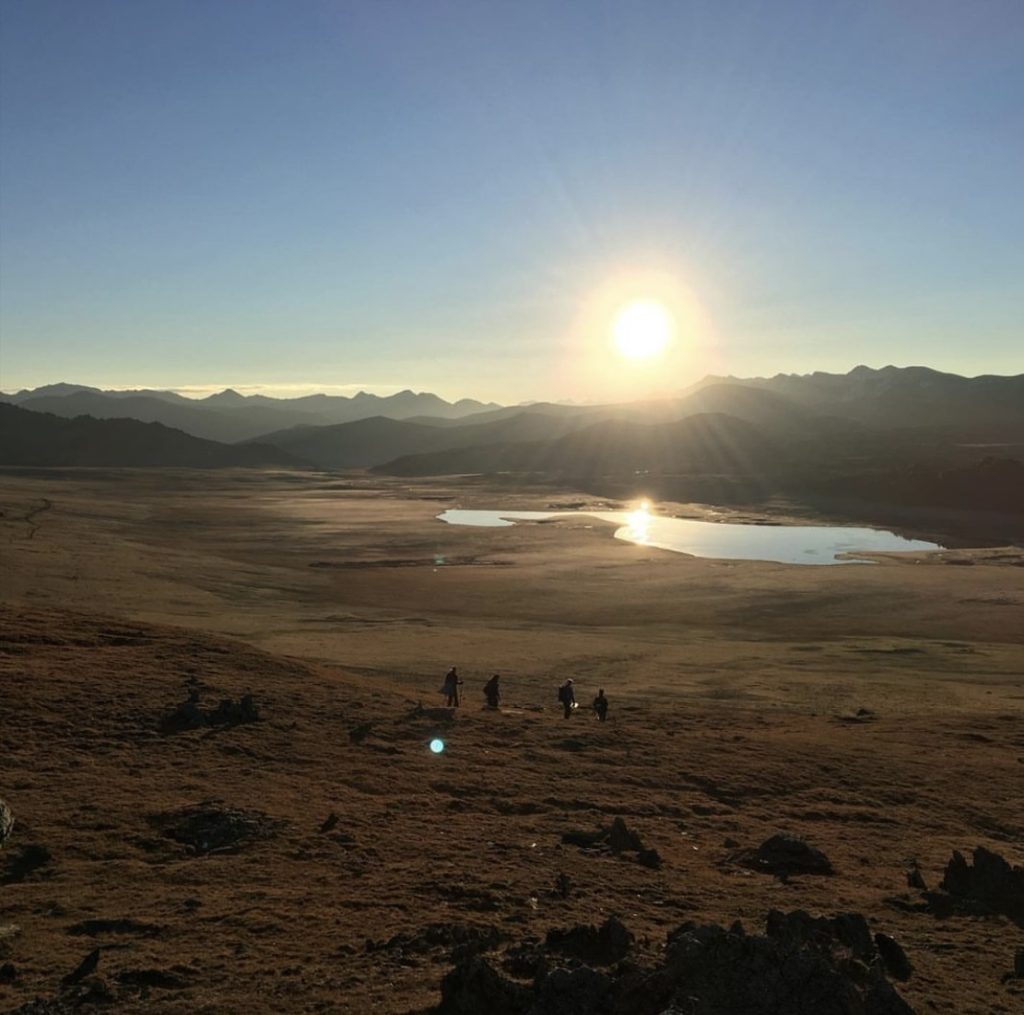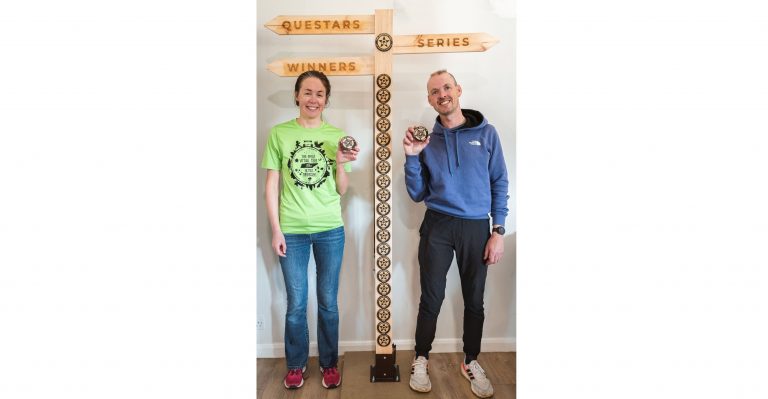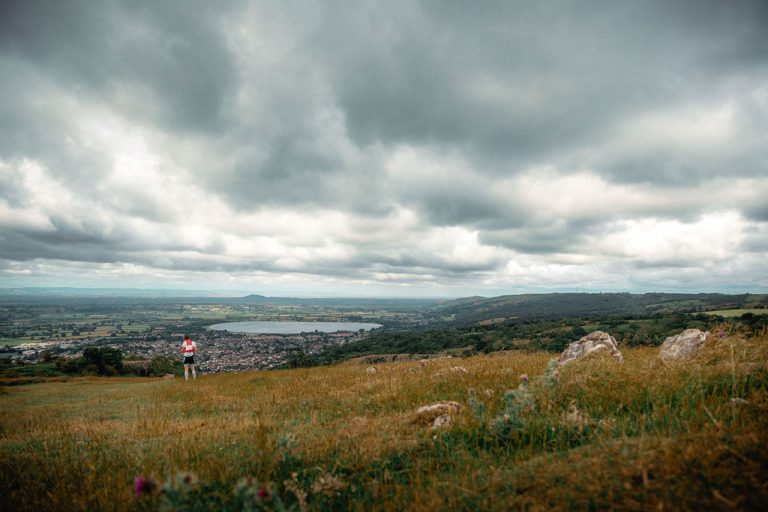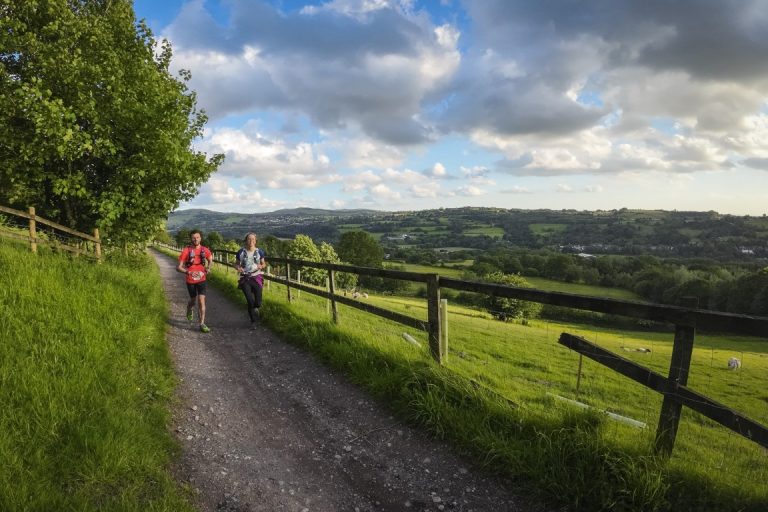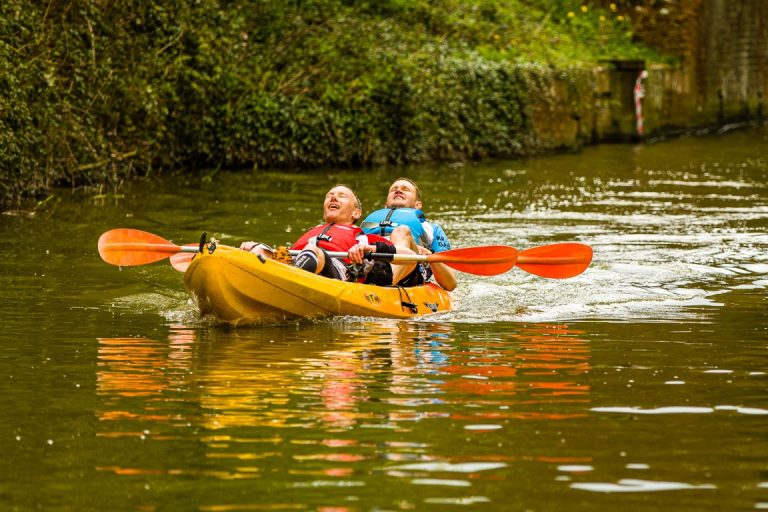
- Wednesday 31 May 2023
Our featured adventure racers of the month are Dan and Helen Murphy. Dan and Helen are incredibly experienced adventure racers having raced extensively in the UK and overseas and are currently taking a sabbatical from UK winters in Perth.
We have been fortunate to race with both of them, picking up a number of tips along the way and here Dan and Helen share their top tips to make your next Questars event a success. So, let’s dive into the wonderful world of Questars Adventure Races.
When did you participate in your first Questars adventure race?
Helen & Dan: 2013 – at least, that’s our first fridge magnet!
Roughly how many Questars adventure races have you participated in?
Helen & Dan: Over 15 each if the magnets are to be believed.
What do you like most about Questars adventure races?
Dan: The quality of the courses (challenging and interesting), the variety of disciplines (kayak, run and MTB) and the strategy of planning the route around the different legs to make sure you get back in time.
Helen: The checkpoints were usually positioned in points of interest to take us places we may not have known even existed in our countryside. Such as old ruins or tunnels. It felt like a Famous Five book.
What do you like most about adventure racing?
Helen: The freedom and escapism. Being out in nature with nothing else, you have to be right there and then, with all your compulsory gear so you are absolutely safe in the middle of nowhere.
Dan: Despite the sometimes intense exercise it is a very zen sport. As either an individual or a team, you become purely focussed on the next checkpoint to find, leaving your mind no time to think about the problems of the world. That and spending time in nature, becoming like an early explorer, if only for a little while.
Why did you first get into adventure racing?
Helen: A couple of friends in Australia had done a 24-hour race and I was in awe, we found some races in the south-east of England and this was the beginning of our navigation and orienteering journey! I spent many races getting lost but I am so grateful I can read maps now; it opens up so much more of the world when you’re comfortable with a map and compass.
Dan: I was looking for a different challenge and had a friend who had done an adventure race in NZ. I liked the idea of having to use my brain to navigate as well as my body to run, ride and paddle around the course. In longer races, I was attracted to racing in different parts of the world, for what was a relatively low cost compared to those ironman-style events.
What advice would you give to someone just getting started adventure racing?
Dan: Don’t be overawed, but also be sure to put in the training based on the event you are entering. You don’t need to have the lightest and most expensive equipment when you start out, but you should definitely spend money on decent shoes and socks!
Helen: Buddy up with someone who can read a map or go on a course and learn how. Don’t forget your snacks!
What is the best piece of advice that you were given when you started adventure racing?
Dan: Stay calm in the face of adversity. More often than not things go wrong in a race and it’s easy to lose your cool when you make mistakes (or someone else does). Just remember that you are out in nature experiencing things most others don’t, and enjoy both the ups and downs.
Helen: This was from Tom Davies who taught me how to read a map…if you get lost or are in doubt of where you are go back to where you definitely knew where you were!
What is your strongest and weakest race discipline? How do you combat your weakest discipline?
Dan: Strongest discipline is kayaking as that was my favourite sport early on. At any point, depending who is on your team, you may discover you are weak on a discipline compared to others. The best way to overcome this is to spend more time training on your weakness, not indulging in your strength.
Helen: My strongest is probably the kayak as that’s my background. Weakest is technical or rocky terrain on foot. Practice makes perfect!
What does your training plan for an adventure race look like?
Dan: Generally, I am planning for 6 days of training a week, with shorter sharper sessions during the weekdays and longer endurance sessions on the weekend (usually have a weekday off for a rest). Weekdays would be interval or speed/strength-based sessions of up to 1 – 1 ½ hours, and weekends could be anything from 3 – 6 hours of a steady race pace (usually out in the hills with a compass on either the MTB or on foot). Discipline selection is based on doing more of the weakness, but will include at least one of each discipline a week. As kayaking is usually a smaller part of any race, generally that will get less time devoted to it than run/trek and mountain biking. Note though that weak kayakers should spend time on the water getting better or risk losing critical points in a race like Questars.
Helen: Depends on the length of the race and what the disciplines are. If it’s an expedition race, usually 2 gym sessions a week for strengthening and injury prevention, mounting biking to work with the backpack a couple of times a week, a lunchtime run, a long and hilly trek with a backpack at the weekend to get the hours on feet and a kayak/mountain bike ride on the other weekend day. If a Questars was coming up I would focus more on trail running and mountain biking without the backpack.
What is your favourite pre-, during- and post-race food for a Questars adventure race?
Helen: Spaghetti bolognaise for dinner the night before, breakfast would be oats or granola. During: would be a banana, nature valley maple syrup bars. Yummmm! Maybe a gel if I’m in a hurry to get back. Dan loves to get just one more CP with 5 minutes to spare! Post-race: anything warm, unhealthy and delicious that is being prepared by the post-food van. Or cake!
Dan: Pre-race is anything you can keep down depending on nerves! Morning starts would mean porridge or muesli, with a pasta meal the night before. During a Questars race then having a favourite energy/muesli bar and a banana at the transition is a great choice. Post race, go nuts, eat your favourite fatty meal full of calories, you’ve earned it!
What do you usually wear for a Questars adventure race?
Dan: Tri-shorts work best for handling both bike and run (and kayak) and if it’s really cold you can always put on some leg warmers with them. On the top half a breathable race T-shirt for when its warm, with options for something like a Gilet if its cold (can be left with your bike as this is when you will likely need it) and also arm warmers for a cold start. A buff around the neck can give you a great sense of warmth and can be easily removed when you heat up. Key is not to overdress for the start only to overheat later on – it’s all about the layers!
Helen: Triathlon shorts and a breathable T-shirt, or base layer depending on weather. In the UK I always took my gilet, arm warmers and buff regardless of the weather forecast!
What’s the one piece of non-mandatory kit in your bag that you could not do without?
Helen: Emergency caffeine gel
Dan: The Gilet – a fantastically versatile piece of kit that can keep your core warm but can be taken on and off (or unzipped) with little fuss. I was once racing and there was persistent light rain – teams we passed wondered why I wasn’t wearing a waterproof jacket, but in my experience, you get too hot and sweat out in those, so just having a gilet to keep the wind off my body was perfect.
What’s the worst mistake you’ve ever made during an adventure race?
Dan: I was navigating a multiday race with a team in South Africa, and made what’s known as a “parallel error” during the first night. We ended up having to double back for 2 ½ hours to get checkpoints that had been missed by being on the wrong trail. It was a horrible feeling to have let the team down.
Helen: Not taking a tyre pump or spare tube! Looong walk back to transition.
What’s the weirdest/funniest/strangest thing that has happened to you during an adventure race?
Dan: On the 3rd night of a multiday race where you are usually hallucinating anyway due to lack of sleep, our team had decided to have a power nap by the side of a dirt road we had been riding along. We had all laid down on the side of the road, using our bikes and backpacks for something to lean on. I was awoken shortly after to see a man on a horse standing in front of me at 3am in the morning – it took me a while to realise he was actually there and I was not imagining it! I still don’t know what he was doing riding a horse at that time of night, but then I guess he must have wondered why 4 people were lying on the ground with mountain bikes as well!
Helen: During a Questars it has to be running through a field as a cow was naturally giving birth to its calf!
What have been some of your greatest adventure racing achievements?
Dan: Finishing most races is an achievement! Coming 4th in the first Expedition India after summiting at over 5400 metres in the trek leg. Not getting lost navigating across northern China on a MTB leg in the dark with a 40 year-old map at a 1:100000 scale.
Helen: Always winning the kayak section of the Questars, even after losing our points for being late back. We smashed the kayak. Dan & I came 7th in the RAID100 in NSW, after my terrible start was my biggest achievement so far.
What is the most difficult part of adventure racing?
Dan: Navigation can be difficult, so either be very good at it, or get on a team with someone who is (but remember, mistakes will happen because it’s very hard). It is also a challenge to keep going, particularly on longer races. The key to both shorter and longer races is to pace yourself and make sure you eat and drink properly the whole time.
Helen: Organisation and not forgetting stuff! You do get better through experiences of not forgetting stuff!
What’s the most helpful advice for racing in a team?
Dan: Have a common goal for the race, and be sure to set expectations before you start. The lead up is key – train together, when possible, be aware and discuss if team mates feel less able than others and set training plans to fix those where possible. When racing, look after each other.
Helen: If you are struggling, tell someone sooner rather than later. There is no ‘i’ in team. Look after each other and help each other.
What are your top tips for adventure racing success?
Helen: Keep moving forwards, time passes really quickly and train for the requirements of that particular race.
Dan: Move with purpose, do the training and enjoy the journey
Thank you, Dan and Helen! Some brilliant advice to help make your next Questars race a success.
Do you fancy giving Adventure Racing a go? Follow the link below to sign up for one of our races
The 2023 Questars Series
Our next race is in Dorset which is the third of our four one-day races which make up our 2023 Series Championship. Anyone entering into any of our adventure races will be automatically entered into our Series Championship with each individual’s top three one-day results counting towards the final Championship position. Full details can be found on our Series Championship page.
News Categories
2024 Adventure Races

